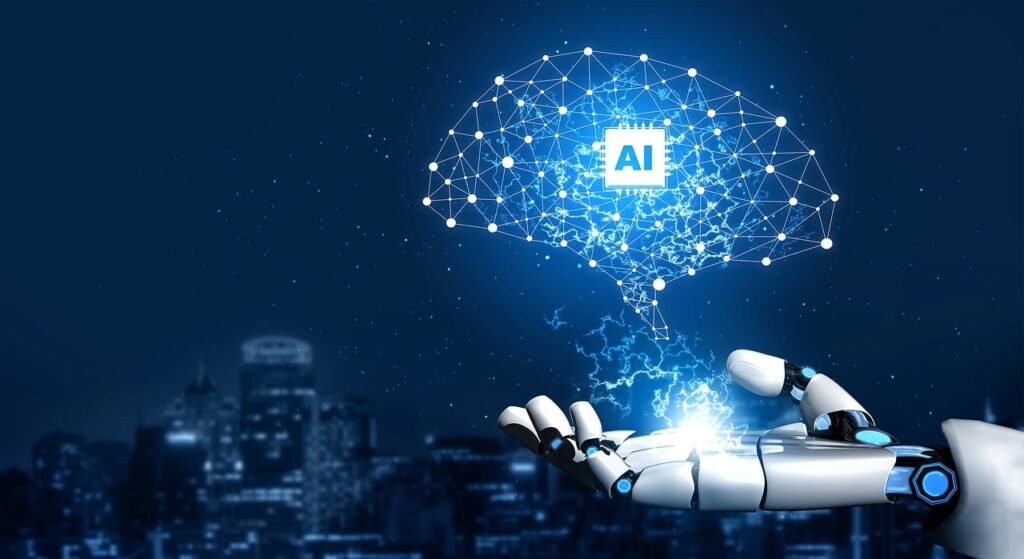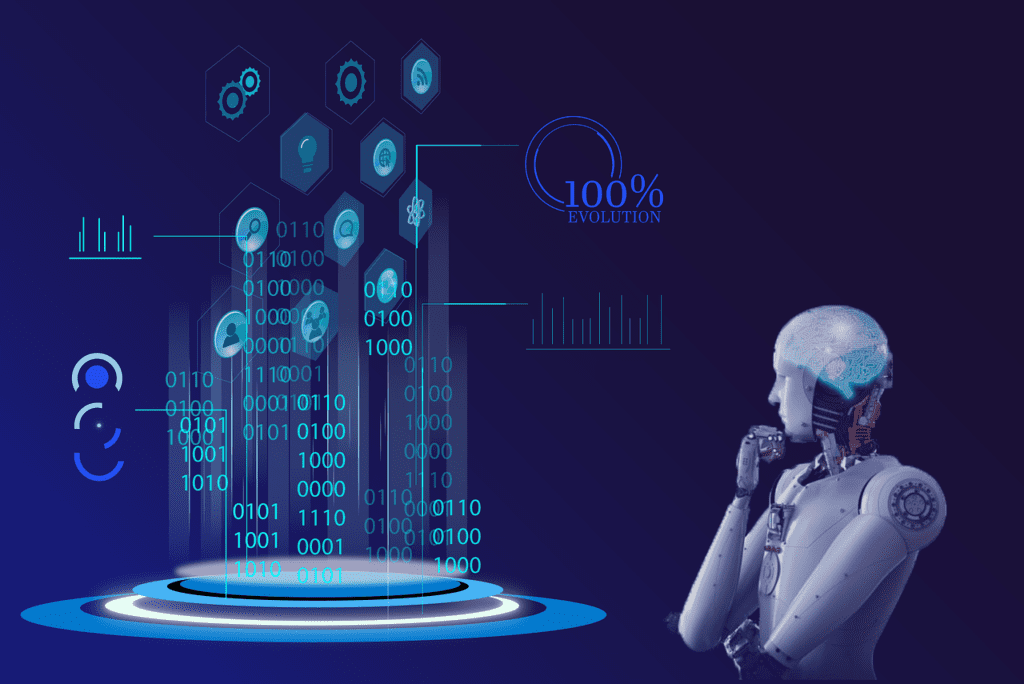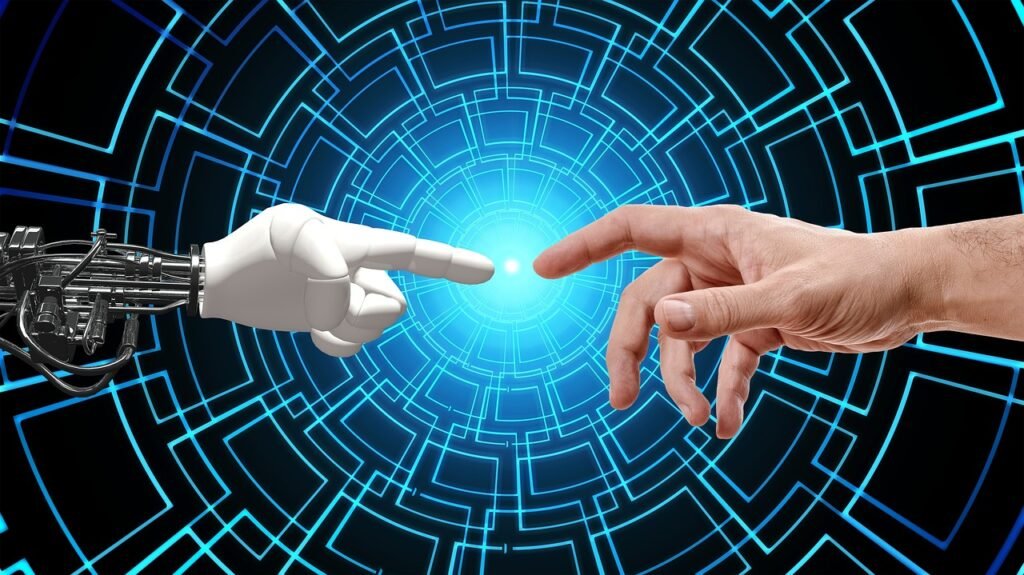What is AI (Artificial Intelligence)

Artificial intelligence refers to computer systems that can execute activities that are conventionally associated with human intelligence, like object identification, voice interpretation, prediction, and natural language generation. AI systems pick up this skill by combing through vast volumes of data and searching for patterns they can replicate in their decision-making. While humans will frequently oversee an AI’s learning process, encouraging wise choices and punishing foolish ones, some AI systems are built to learn independently. In this blog post, we will discover what is the Future of AI. How it is changing the world and how can we survive in the AI Revolution?
AI systems become more efficient at completing particular jobs over time, enabling them to adjust to new inputs and make judgments without having to be specifically trained. Artificial intelligence is essentially the study of teaching robots to think and learn like people to automate tasks and solve issues more quickly.
The Growth of AI
AI began in the 1950s with Alan Turing’s pioneering work, when he created the Turing Test to determine whether a machine could replicate human thinking. John McCarthy’s creation of LISP, the first AI programming language, in the 1960s, gave AI research a boost. Expert systems were developed in the 1970s and 1980s as a result of early AI systems’ emphasis on rule-based and symbolic thinking.
The 1990s saw a shift in emphasis towards data-driven strategies and machine learning, driven by the growing accessibility of digital data and improvements in processing capacity.
Since then, Generative AI has become the most recent phase of AI development; in 2018, OpenAI released its first GPT models. The result of this has been the development of ChatGPT and the GPT-4 model by OpenAI, which has sparked the emergence of other AI generators that can process queries to output relevant text, audio, graphics, and other sorts of material.
Future of AI
A revolution in technology that has the potential to increase productivity, accelerate global growth, and elevate incomes globally is about to happen. However, it might also increase inequality and replace jobs.
Artificial intelligence is developing at a rapid pace, captivating people’s attention and posing serious concerns about how it can affect the world.
The overall impact is hard to predict because AI will have complex impacts on economies. We can confidently state that we will need to develop a set of policies to safely utilize AI’s immense potential for the benefit of humans.
Which Industries Will Be More Affected by AI?

Finance and Insurance
Artificial intelligence (AI) is being used in insurance and finance to improve the accuracy of financial forecasting and fraud detection. Machine learning algorithms are capable of analyzing large amounts of policy, financial, and other data to find patterns that can point to fraud. AI and weather models can be utilized in the insurance industry to evaluate the risk of weather occurrences on client assets and, consequently, estimate insurance costs and potential damages. Finally, businesses may improve the accuracy of their future revenue and profitability projections by utilizing AI-driven financial forecasting models.
Healthcare
The healthcare industry is also turning to machine learning and Big Data to improve medical diagnosis and clinical decision-making. A Frost & Sullivan analysis claims that the use of AI can lead to up to 40% improvements in health outcomes. This enables early identification of diseases like cancer or heart disease that are difficult to detect, assisting healthcare professionals in making better judgements. It also enables the detection and prediction of patterns that would be missed by physicians.
Industrial Sector
According to the AI Index report, 10% of industrial companies have already adopted this technology. This is because increasing productivity, decreasing unplanned manufacturing stoppages, improving product quality, and automating processes are now essential for achieving optimized, higher-quality, and more sustainable industrial production. Better resource management is made possible by these technologies, which also save time and lower maintenance and production costs. Beyond that, it makes quick decisions and well-informed choices possible while also enhancing worker safety in industrial settings.
Education
Artificial intelligence is fundamentally changing our understanding of the educational process by emphasizing personalization according to the unique requirements and features of each student. Because AI can identify learning patterns and pinpoint each student’s strengths and weaknesses, it can help teachers analyze their students’ academic performance more effectively.
Human Resource
The fields of human resources have also changed as a result of AI’s capacity to analyze vast volumes of data. Artificial intelligence algorithms, for instance, can examine the professional profiles of prospective employees identify essential skills for the hiring procedures. It also helps HR managers find applicants and manage internal talent so that they may present them with options for advancement and career development.
How can we Survive in the AI Revolution?

The rapid development of AI has raised both excitement and fear. The advancements in AI excite some people while alarming others. Many people these days are asking themselves questions like “Will robots take our jobs?” and “How should we prepare for the future?” It makes perfect sense given that, in terms of AI, we’re all in a new situation.
Although this change may seem alarming, it’s important to realize that AI’s development does not indicate the end of human employment. Rather than serving as a substitute, AI can be a useful tool. Additionally, as AI advances, new professions like AI Ethicists and Prompt Engineers are being created that we never would have imagined. Therefore, although AI will surely have an impact on our careers, it is not only a threat. Humans have the chance to take advantage of this technology, increase productivity, and produce amazing things.
Following Steps can help you to Survive in AI Revolution
Continuous Learning: Stay updated with the latest AI technologies, tools, and trends. This includes understanding how AI impacts your industry and job role.
Adaptability: Be open to learning new skills and adapting to new roles that AI may create or change. This might involve reskilling or upskilling to remain relevant in the job market.
Creativity and Innovation: AI can automate many tasks, but creative and innovative thinking are still highly valuable. Focus on developing these skills to complement AI technologies.
Emotional Intelligence: Skills like empathy, communication, and emotional intelligence are harder for AI to replicate. Developing these skills can give you a competitive edge in the AI-driven world.